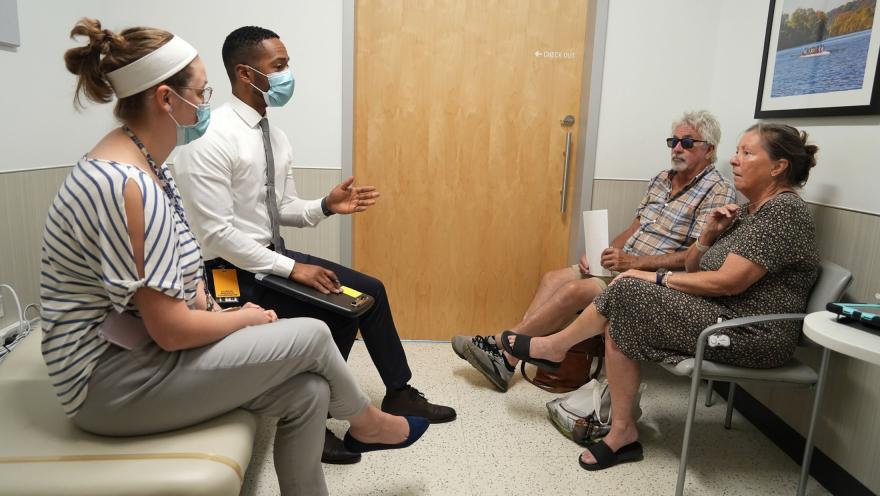Ten years ago, the Ice Bucket Challenge changed the landscape of ALS forever. It brought much needed funding to the fight against the disease, but it also raised awareness about ALS to a level never seen before, including among an especially critical audience: health care professionals.
With only about 5,000 Americans diagnosed with ALS each year, doctors, nurses, and other health care providers from different fields and disciplines might see less than a handful of people with the disease during their entire career. By raising their awareness, they gained a better understanding of ALS, the symptoms it causes, and how to recognize them in the people they treat.
“It's such a heterogeneous disease, so everyone looks a little bit different,” says Dr. Kelly G. Gwathmey (M.D.), Medical Director at VCU Health’s ALS Clinic. “It starts either in the hand or the foot, or in the speech/swallow muscles, or the breathing muscles even. And so, it often will get misdiagnosed initially.”
Currently, ALS is considered a “diagnosis of exclusion,” meaning people experiencing ALS-like symptoms often have to undergo a battery of different tests designed to rule out other conditions. This means it takes, on average, 10-15 months from the time a person first notices symptoms to receiving an ALS diagnosis.
Reducing this time to diagnosis is critical to avoid unnecessary testing and medical procedures and for people living with ALS to get access to multidisciplinary care and treatments that can help maintain their quality of life.
“If you delay diagnosis, these patients could not access disease-modifying therapies. They couldn't get the non-invasive ventilators or the feeding tubes placed in a timely fashion when they needed them. And then also, they weren't candidates for clinical trials often because they were coming in with more advanced disease,” said Dr. Gwathmey.
Having a diagnostic test for ALS would help speed up this process considerably. Since the Ice Bucket Challenge, we have supported more than 70 ALS research projects focused on discovering and validating new ALS-specific biomarkers, which are essential for developing tests and tools that can detect or confirm the disease.
As researchers around the globe continue to work to identify and investigate potential ALS biomarkers to help definitively diagnose ALS sooner, we have also developed thinkALS™—a free tool available to healthcare professionals to help them better understand ALS, recognize its symptoms sooner, and refer people to multidisciplinary ALS centers faster.
While not a diagnostic tool, thinkALS provides non-ALS specialists a comprehensive list of key clinical features of the disease that may lead them to suspect an ALS diagnosis much earlier than they would otherwise.
For people living with ALS, every moment matters. A quicker diagnosis means seeing a multidisciplinary care team sooner. It means more opportunities to participate in research and clinical trials. It means getting access to treatments and interventions that can help them live longer and stronger with ALS.
We still need quicker diagnoses.
We still need a cure.
Let’s see it end.
Join Us as We Connect, Collaborate
and Change the Future of ALS

Dr. Kelly G. Gwathmey will be joining other leaders from the ALS community at ALS Nexus to discuss how to improve time to diagnosis and other topics to help people with ALS live their lives to the fullest.
Be a part of the conversation. Join us at ALS Nexus.
To continue to follow stories about people living with ALS in the community and learn more about the disease, subscribe to receive our weekly blogs in your inbox HERE or follow us at als.org/blog.


Join the conversation. Please comment below.